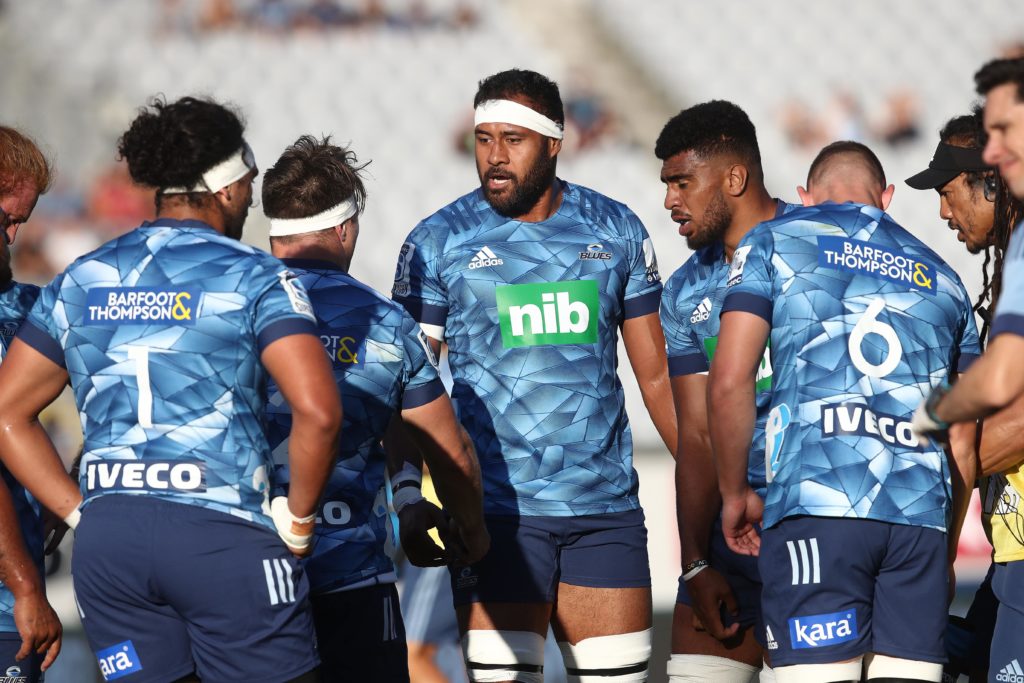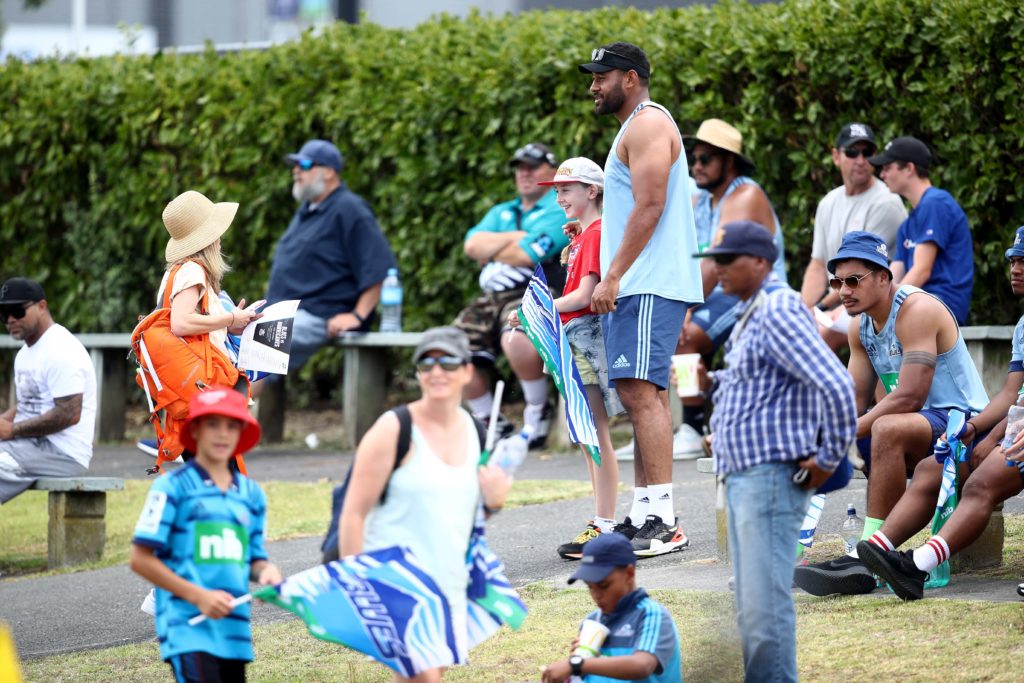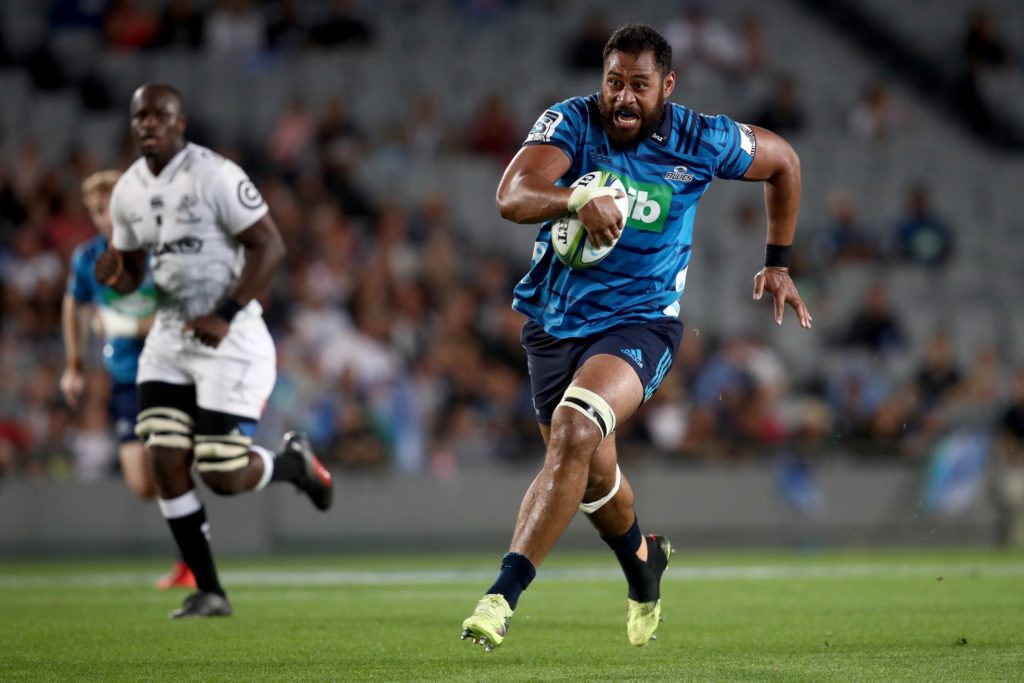There’s no end to the reasons why the Blues are no longer the soft, flaky bunch they were a few years ago. A new coaching team, new players, a new chief executive and a new competition have all been major factors in driving improvement.
But arguably the most significant shift has come in their ability to stay calm and seize the moment in big games. Between 2018 and 2019 they were often able to keep pace with the better teams until the final quarter when inevitably one poor decision or weak moment would cost them.
That habit was kicked last year and poor decision-making or wild moments of panic are no longer a blot on the Blues’ landscape. They are a team with a cast-iron core.
Under pressure, this Blues team can stand up and they take games rather than passively wait for them to be taken from them.
The shift in mind-set is huge and much of it has been driven by captain Patrick Tuipulotu – who has transformed himself from a promising but occasional under performer into a world class presence who consistently delivers.

The Blues have become tougher, more resilient and composed in the last two years, a period in which Tuipulotu has matured, grown in stature and found his voice.
He’s become the sort of forceful, inspiring captain the club has craved for an age and he’s driving standards at training and holding everyone accountable.
Tuipulotu has effectively come of age and he has taken his team-mates with him which is why the Blues have won 11 of their last 14 games.
These numbers wouldn’t wash at the Crusaders but given where the Blues have been in the last decade, they are a source of significant pride in Auckland.
Not that Tuipulotu is telling himself or his team-mates that the Blues have reached any kind of summit. It’s a start. Only that. Tuipulotu and the Blues are both a work in progress – locked in this symbiotic relationship.
The Blues have become tougher, more resilient and composed in the last two years, a period in which Tuipulotu has matured, grown in stature and found his voice.
The more Tuipulotu grows as a leader, the better the Blues become and it’s a process that began in 2019 when Tuipulotu completed a bachelor of applied management through Otago Polytechnic and then enrolled in Samoan classes as well as volunteering to work for the Dingle Foundation, a charitable organisation for which he is now an ambassador.
He’s also now an ambassador for Samoan tourism and Tuipulotu is almost unrecognisable from the shy, quiet 21-year-old who turned up at the Blues in 2014.
“In my first couple of years I was pretty naive and I was that guy who just wanted to play rugby and get paid for it,” he says.
“The last few years I have had more of a leadership role which has really forced me to groom myself and put myself out there.”
He says leadership forced him to adapt, but the argument is stronger that he grew up, pro-actively sought opportunities to better himself and leadership followed.
Tuipulotu earned the captaincy because he took responsibility for his professional development and with it, became an obvious choice to take over from James Parsons in 2020.

And he’s admiringly honest about what kick-started his journey of self-improvement. “To tell you the truth I am scared to stop playing rugby – it’s only going to last for so long and I have my whole life ahead of me,” he says.
“A great motivator is money because I have to think about how I’m going to pay the bills after rugby. Being real, I am not going to earn this much after rugby, so I want to upskill myself to try to get a job that pays the bills in something I enjoy doing.
“That will be finding something that is all about giving back whether it be a coaching role or leadership role or something with schools.”
When the time comes, as it inevitably will, to look back and ask what it was that re-directed the Blues: to analyse how they finally managed to regain their edge and re-establish themselves as a heavyweight title contender in the early 2020s after almost 20 years in the wilderness, Tuipulotu is going to be considered one of the most influential figures in the club’s history.
The Blues have not previously had an endemic culture of players broadening their horizons and going outside their respective comfort zones.
[I want to find] something that is all about giving back whether it be a coaching role or leadership role or something with schools.
Patrick Tuipulotu
As a result of the city’s astronomic housing prices, most years most of the squad live at home with their parents and players tend not to develop vital life skills as a result.
Auckland’s notoriously awful traffic has added hours of commuting into each day and been a deterrent to players studying or building business interests.
Tuipulotu, who studied architecture for a year before his first professional contract, has changed mind-sets at the club and opened his team-mates’ eyes to the scale of opportunities they are exposed to as professional players.
“I like to think there is a lot of cross-over between what we do here and in the corporate world,” he says.
“When I was doing my degree that was the gist of it – I had to convert what I knew in rugby circles and turn it into what you do in the corporate world and a lot of it was transferable.
“That was a lightbulb moment for me where I realised that a lot of what they do is done here. I run a lot of meetings here [Blues] and it is the same in the corporate world. We have everything given to us and we are spoon fed a lot of things, so we have to make sure we don’t take things for granted.
“We get a lot of network opportunities and a big part of standing on your own two feet is networking outside of rugby and there are a lot of rugby players who are doing a lot of great things in the corporate world after rugby so if we can get our network skills right then the world is at our feet.”

Reconnecting with his Samoan roots has been at the heart of Tuipulotu’s journey of self-discovery and has been a source of genuine empowerment at a club where more than half the squad identifies as Pasifika.
The Polynesian influence has been significant at the Blues for the last 20 years but arguably it has not been something the club has successfully known how to tap into.
Tuipulotu says that, typically, young Polynesians are reticent to openly embrace their backgrounds and as a result there can often be a sense of confused identity where players at the Blues are not sure how to be themselves.
He decided to rekindle his Samoan language skills as part of a wider drive to better understand his background in a new world where diversity is recognised as a strength.
“It was good for me to get back to my roots and learn a bit more about my culture,” he says.
“I grew up speaking Samoan and then I slowly lost it somewhere but it is coming back to me. With society now there is a lot of positivity with the diversity of things and a lot of companies are looking for people with a diverse quality. I can bring my Samoan heritage with me and it is a key strength of mine that I can be a role model for that diverse workforce.
“I am a Kiwi – I grew up here, but at the same time I am Samoan. I am pretty lucky I get the best of both worlds and when I was doing Samoan classes I was very lucky to think I had such a good life here in New Zealand and yet there is a lot of heritage on my Samoan side I can be proud of.
“A lot of us Polynesians want to play the humble card and just be quiet about it, but I think in this day and age it is okay to be proud of where you are from and speak about it.”
A lot of us Polynesians want to play the humble card and just be quiet about it, but I think in this day and age it is okay to be proud of where you are from and speak about it.
Tuipulotu
Tuipulotu has just turned 28 and he and his partner, Phoenix, recently had their first child and these two events have heightened his desire to keep pushing himself off the field.
He says it’s unlikely he’ll return to study architecture as he’s realised that what inspires him – interests him – is working in some kind of defined leadership role where he interacts and connects directly with his community.
But he’s also aware that the benefits of his personal growth are not solely being stored for his life after rugby.
He has, without question, become a better rugby player and captain in the last two years and believes that the skills he is learning off the field are transferring on to it.
And they are clearly transferring to his team-mates, who opened their campaign with an impressive demolition of the Hurricanes – a victory which came despite the Blues’ disrupted preparation and limited pre-tournament game time as a result of Auckland-specific Covid-19 lockdowns.
That’s how the Blues are these days, tougher, resourceful and adaptable having been built in the reflection of their captain.


Comments
Join free and tell us what you really think!
Sign up for free